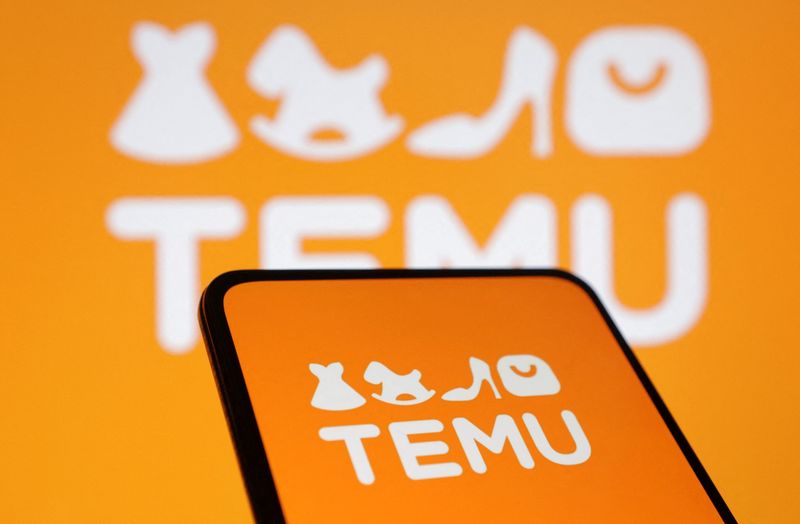By Sophie Yu and Deborah Mary Sophia
(Reuters) – China’s PDD Holdings missed market estimates for quarterly income on Monday, and downbeat feedback from executives about China’s home e-commerce competitors and the agency’s international outlook despatched its shares down greater than 28%.
The largest one-day share fall for PDD because it listed within the U.S. in 2018 worn out practically $55 billion in market capitalisation. The e-commerce retailer operates discount-focused platforms Pinduoduo (NASDAQ:) in China and Temu for the worldwide market.
“(We) are seeing many new challenges ahead, from changing consumer demand, intensifying competition and uncertainties in the global environment,” Co-Chief Govt Chen Lei stated on an earnings name with analysts after the outcomes.
“We will enter a new phase of high-quality development that calls for increased investments and our profitability will be affected as a result,” he added.
China’s fragile economic system, persistent weak point within the property sector and excessive youth unemployment charges, have led shoppers to chop again on purchases, weighing on the nation’s retail and e-commerce sectors and prompting cut-throat competitors for market share amongst e-commerce giants.
Whereas Pinduoduo’s low costs and steep reductions on every little thing from cleansing merchandise to earphones have attracted cost-conscious buyers, main rivals akin to Alibaba (NYSE:) and JD (NASDAQ:).com have additionally provided heavy promotions on their very own platforms, piling aggressive strain on PDD.
“Looking ahead, revenue growth will inevitably face pressure due to intensified competition and external challenges,” stated PDD’s Vice President of Finance Jun Liu.
UBS analyst Kenneth Fong stated that whereas Pinduoduo was performing effectively, with good progress and profitability despite the extremely aggressive home e-commerce atmosphere, administration’s tone was complicated for buyers.
“Investors aren’t sure if Pinduoduo sees what we don’t see or if it’s overly conservative in an uncertain macro environment,” Fong added.
M Science analyst Vinci Zhang agreed that PDD administration’s outlook sounded “very bearish”.
“We know there’s a consumer spending slowdown, but there was hope that maybe PDD having the budget product platform with cheaper offerings can capture this slowdown, but it turns out that they are also losing,” Zhang stated.
Co-CEO Chen stated shoppers are more and more selecting to spend on experiences moderately than materials items and there’s a “growing emphasis on rational consumption”.
Chinese language e-commerce big Alibaba missed market estimates for income earlier this month, pinched by weaker home e-commerce gross sales, whereas JD.com’s quarterly income grew only one.2%.
Each agency’s U.S.-listed shares additionally fell within the wake of PDD’s earnings miss.
PDD reported income of 97.06 billion yuan ($13.64 billion) within the second quarter, in contrast with analysts’ common estimate of 100 billion yuan, based on LSEG knowledge.
Working bills rose by 48% within the three months ended June 30, as the corporate invested in advertising, promoting and promotions to draw buyers.
Normal and administrative prices greater than tripled within the quarter to 1.84 billion yuan, due to staff-related bills.

($1 = 7.1173 )
(This story has been corrected to repair market cap loss quantity to $55 billion, not $40 billion, within the headline and paragraph 2)




